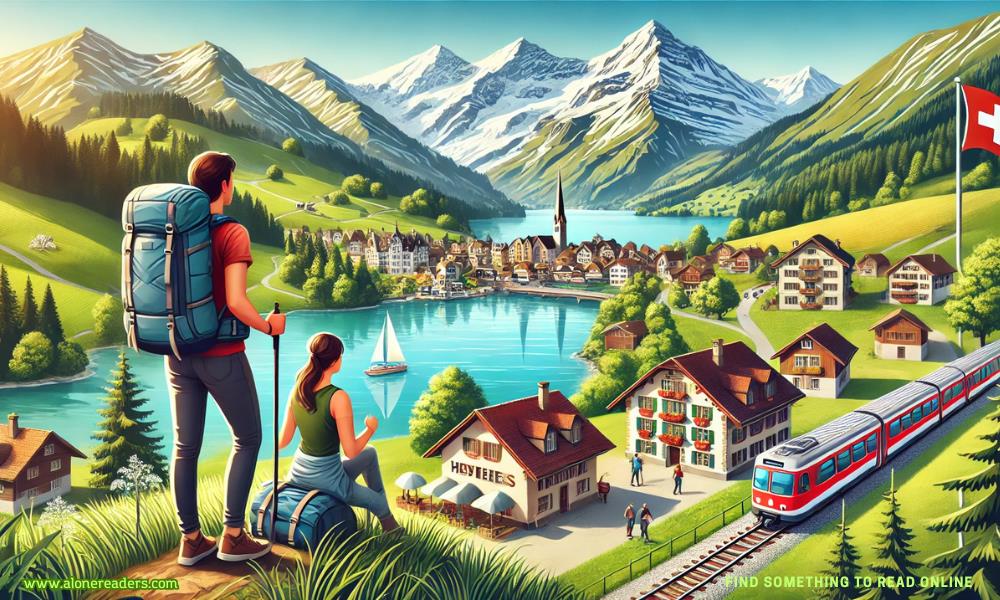
Switzerland is often seen as a luxurious destination, famous for its breathtaking alpine landscapes, pristine lakes, and charming villages. However, you don’t need a fortune to experience its magic. This budget traveler’s guide will show you how to explore Switzerland on a shoestring while still enjoying the best of what the country has to offer.
Flying to Switzerland from most parts of the world can be expensive, but with a little planning, it’s possible to find affordable options. Budget airlines like EasyJet or Ryanair frequently offer low-cost flights to Zurich, Geneva, and Basel from other European cities. If you’re already in Europe, consider traveling by train. Switzerland is part of the extensive European rail network, and booking early can save you a significant amount on tickets. A Swiss Travel Pass might also be a good investment if you plan to explore the country extensively by train, bus, and boat.
Estimated Cost: Flights range from $100 to $500 depending on your departure point. A Swiss Travel Pass starts at around $250 for a three-day pass.
Switzerland is known for its luxury hotels, but there are plenty of affordable options for budget travelers. Youth hostels, guesthouses, and Airbnb rentals offer budget-friendly alternatives. For those who prefer nature, camping is a popular option during the warmer months. Many hostels in cities like Zurich, Geneva, and Lucerne are well-equipped and often centrally located, making it easier to explore without spending too much on transport.
Switzerland’s public transportation system is one of the most efficient in the world, but it can be expensive. To save money, consider the Swiss Half Fare Card or the Swiss Travel Pass, which allows unlimited travel on trains, buses, and boats for a set period. Many cities also offer free public transport if you stay overnight at a local hotel.
For short distances, walking or renting a bike are budget-friendly ways to explore cities like Bern, Basel, and Zurich. If you plan to visit the mountains, opt for regional travel passes to save on train and cable car costs.
Estimated Cost: A Swiss Half Fare Card costs around $130 and gives you 50% off public transportation and mountain railways.
Despite its reputation for being pricey, Switzerland offers plenty of budget-friendly attractions. Many of its most beautiful sights, like the majestic Alps and serene lakes, are free to enjoy. Here are some budget-friendly attractions you can’t miss:
Lake Geneva: The stunning views of Lake Geneva and the surrounding Alps are free to enjoy. You can take a leisurely walk along the shore or explore the nearby towns of Montreux and Vevey, which offer beautiful promenades and historical sites.
The Matterhorn: One of Switzerland’s most famous landmarks, the Matterhorn can be viewed from the town of Zermatt. While taking the cable car up the mountain is expensive, you can enjoy views from the town for free, or embark on hiking trails for a closer experience.
Old Towns of Zurich and Lucerne: Both Zurich and Lucerne have picturesque old towns with medieval architecture and cobblestone streets. These areas are free to explore and offer a glimpse into Switzerland’s history.
Hiking in the Swiss Alps: Switzerland is a hiker’s paradise, and the best part is that most hiking trails are free. Whether you’re in the Interlaken region or the valleys around Zermatt, you’ll find stunning trails that cater to all fitness levels.
Museums: While many Swiss museums charge an entrance fee, several offer free entry on specific days or discounts with the Swiss Travel Pass. The Swiss National Museum in Zurich and the Geneva Museum of Art and History are both worth visiting.
Eating out in Switzerland can be expensive, but there are ways to enjoy delicious Swiss food without overspending. Supermarkets like Migros and Coop offer affordable pre-made meals, snacks, and fresh produce. Many also have in-store cafeterias where you can get a hot meal for a reasonable price. When dining out, look for local bakeries, street food stalls, and pizzerias, which tend to be more affordable than sit-down restaurants.
Switzerland is one of the safest countries in the world, but there are a few things to keep in mind to ensure a smooth trip:
Conclusion
Switzerland is an unforgettable destination, with stunning natural landscapes, rich history, and vibrant culture. While it’s known for being pricey, this guide shows that with a bit of planning and smart budgeting, it’s possible to enjoy the best of Switzerland without breaking the bank. From hiking in the Swiss Alps to exploring historic cities, budget travelers can experience the magic of Switzerland in an affordable way.
By planning your trip carefully and taking advantage of affordable accommodations, transport options, and free attractions, you’ll find that Switzerland can indeed be a budget-friendly destination. Happy travels!